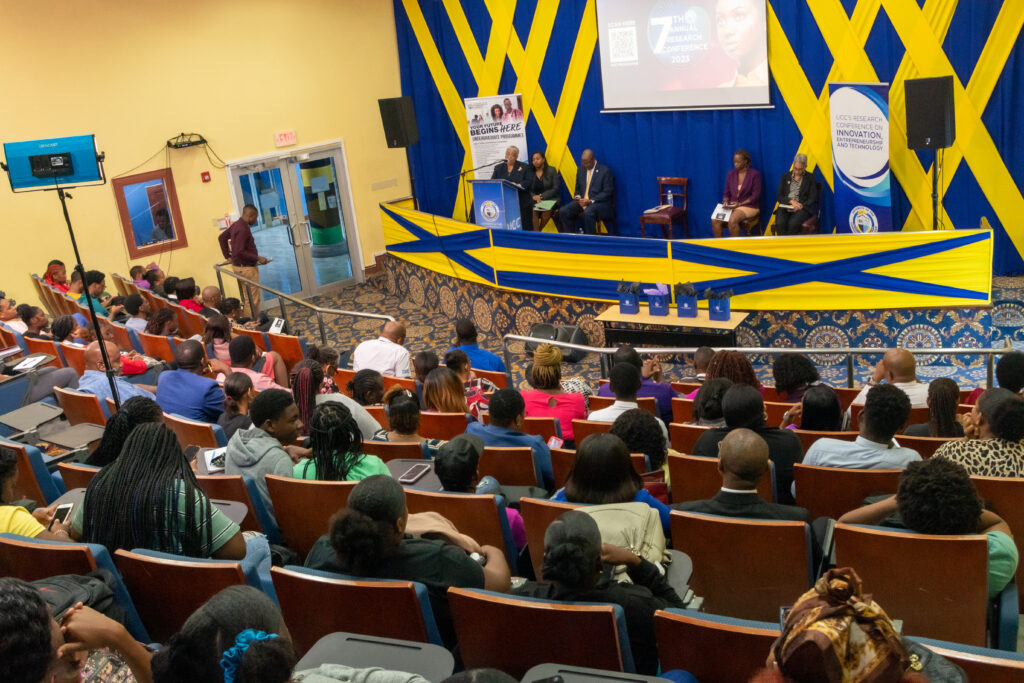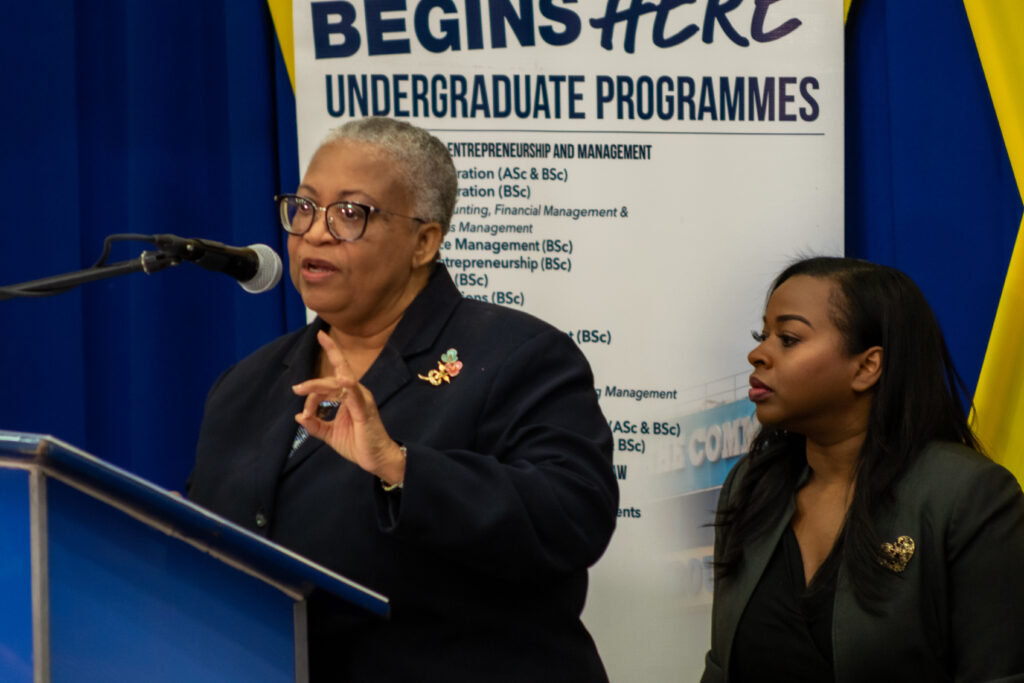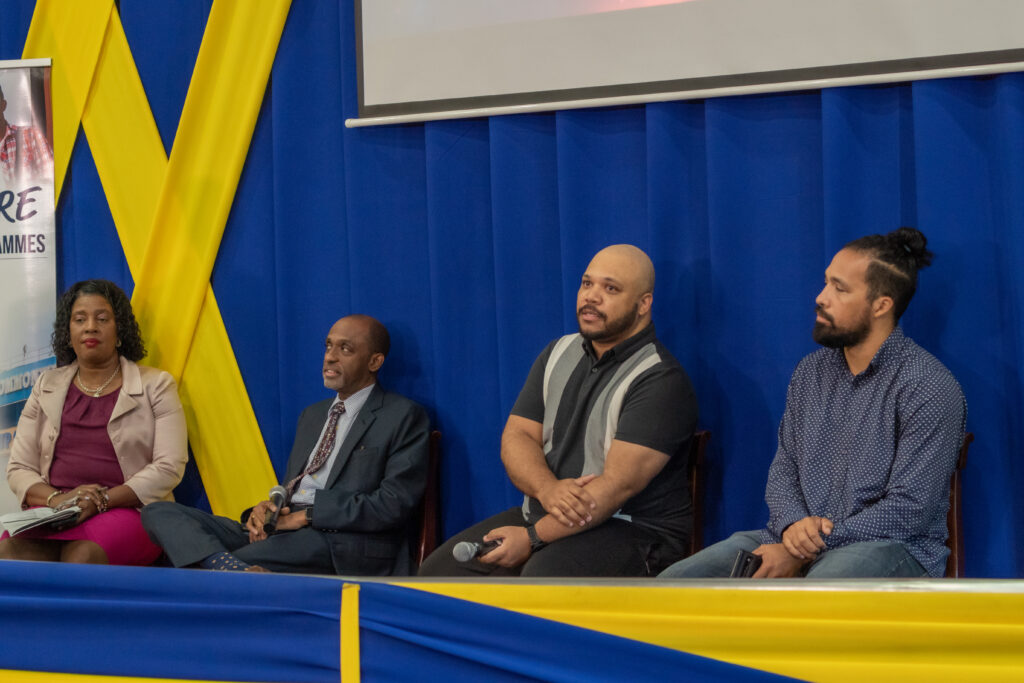

The University of the Commonwealth Caribbean (UCC) recently hosted its seventh annual research conference, titled “Embracing the Digital Age: Opportunities, Challenges and Innovation,” where a prominent theme emerged – the potential of technology in liberating Jamaica from mental slavery.
The event brought together academia, students, professionals from the technology and financial sectors and other stakeholders at UCC’s main campus in Kingston and virtually on Zoom, YouTube, and Facebook.
Both the conference and the newly launched ‘Caribbean Journal of Applied Innovation and Research‘ employed various media to impart knowledge, including paper presentations, panel discussions, interviews, and poster displays.
The research conference aimed to explore the role of technology in advancing socio-economic development at both the national and individual levels.
Traditionally, education and work in Jamaica and the Caribbean have been characterised by outdated methods, resisting the shift from traditional “chalk and talk” teaching approaches to more interactive and practical methods. Moreover, there has been significant hesitance in transitioning to virtual offices and remote work. However, the COVID-19 pandemic accelerated the need to embrace technology for education and work, highlighting the importance of improving access to and the reliability of information technology services.
In a compelling keynote presentation, Dr. Marlene Street-Forrest, managing director of the Jamaica Stock Exchange and a UCC honoree, discussed the opportunities they have to live in Jamaica while working anywhere in the world.

She shed light on how many developing countries were using digital interfaces to create jobs and earn foreign exchange, emphasising the significance of ethics in the digital age and promoting “reverse mentoring,” where younger generations teach older individuals how to use new technology.
During the second-day keynote presentation, Michelle Stewart-McKoy, faculty/educational developer at the Centre for Excellence in Teaching & Learning at the University of the West Indies (UWI), discussed “peer and cross-generational” learning and how technology in the classroom can enhance learning across different age groups.
She emphasised the importance of careful planning, assessment, and a visionary approach to integrating technology in education. This perspective was further substantiated in the academic community through Nekeisha Reid’s journal contribution from the University of Guyana, discussing why technology integration should be a top priority in instructional planning.

UCC faculty doctors Dookwah and Mohan, reported on research conducted with their students at the Worthington Avenue-based institution, focusing on the effects of digital gaming on high school students’ academic, social, and mental health. The journal included research on the psychological impact of the transition to e- learning on undergraduate students during the COVID-19 pandemic by Dr. Cecile Dennis and her students at UCC.
Their work highlighted that while technology offers numerous benefits, it should be combined with addressing “technology-neutral” behaviour, including attendance and study time. Moreover, technology’s impact on psychological well-being, including issues like loneliness due to limited social interaction, was addressed as an important consideration for education and virtual work.
Both academicians and professionals from the technology and financial sectors acknowledged the potential of technology to level the socio-economic playing field by enhancing access to information and knowledge through the use of artificial intelligence to rapidly analyse vast data sets.

The use of technology is enabling a more inclusive participation in the financial world, reducing operating costs, particularly for entrepreneurs. Digital technology provides income-generating opportunities and greater independence for potentially breaking free from the constraints of traditional divides such as age, gender, socio-economic status, and geographic location.
The consensus of the conference and journal is clear: technology has the potential to emancipate Jamaica from mental slavery by offering opportunities for progress, development, and economic independence.

However, this transformation requires a willingness to unlearn old norms and embrace the ethical use of technology for the betterment of humanity. Embracing technology is not just a choice; it is a path to liberation, equality, and prosperity.







Comments